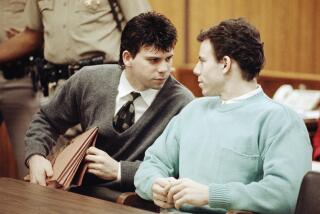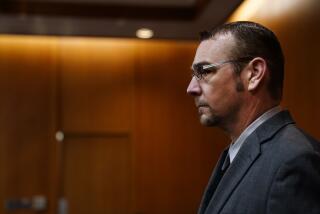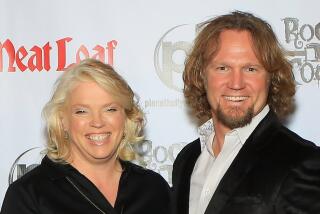Trayvon Martin’s brother, mother testify about more than words
I don’t get the feeling that Trayvon Martin’s big brother, Jahvaris Fulton, was called to the witness stand Friday morning in Sanford, Fla., because the prosecution wanted the jury to hear his opinion about whose voice was screaming for help on the night Martin was shot in the heart by George Zimmerman.
Martin’s mother, Sybrina Fulton, had just testified with clarity and conviction that the cries for help on 911 tapes were Martin’s. “I heard my son screaming,” she said.
And yes, in some ways, the second-degree murder case against Zimmerman hinges on those cries. If they belonged to Martin, it’s clear he was in rightful fear for his life. If they belonged to Zimmerman, the claim he killed Martin in self-defense is persuasive.
GRAPHIC: Who’s who in the Trayvon Martin case
But I get the feeling that Fulton, 22, was there to remind the jury that Martin was a normal 17-year-old with strong family ties.
In her brief time on the stand this morning, Martin’s mother, a college graduate who works for the Miami-Dade housing authority, noted that her son had two tattoos: a pair of praying hands holding pearls with the names of his grandmother and great-grandmother on his upper right shoulder. The other was on his left wrist: “He had my name there,” Sybrina Fulton said.
Martin was an unarmed high school student walking home in the rain with his hood up when Zimmerman, head of the local neighborhood watch and aspiring policeman, decided he must be up to no good and followed him. In the police report that night, Zimmerman repeatedly referred to Martin as “the suspect.”
Jahvaris Fulton’s very presence refuted that image of Martin.
A soft-spoken senior at Florida International University, he said that he and his little brother were close. After their mother and stepfather divorced when the boys were about 5 and 9 years old, he said, they spent weekends with their stepdad, Tracy Martin, whom they considered their father. He lives at home with his mother and uncle.
I’m not sure what he said was all that important, though.
What was far more important was that there, on the stand, sat a young man with ambition and a future. His features echoed his brother’s face, a face that has become for many a symbol of the way prejudice remains a toxic social force for black teens and young men.
ALSO:
Panic ensues in fireworks accident: ‘It felt like a punch’
In tiny Cayucos, Fourth of July means one thing: a huge party
Fireworks company ‘deeply regrets’ Simi Valley explosion, injuries
Twitter: @robinabcarian
More to Read
Start your day right
Sign up for Essential California for news, features and recommendations from the L.A. Times and beyond in your inbox six days a week.
You may occasionally receive promotional content from the Los Angeles Times.







